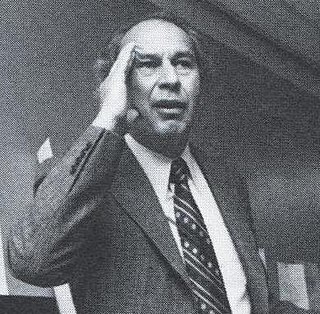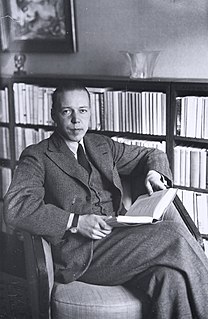A Quote by Nikola Tesla
The scientific man does not aim at an immediate result. He does not expect that his advanced ideas will be readily taken up. His work is like that of the planter — for the future. His duty is to lay the foundation for those who are to come, and point the way. He lives and labors and hopes.
Related Quotes
It is God's earth out of which man is taken. From it he has his body. His body belongs to his essential being. Man's body is not his prison, his shell his exterior, but man himself. Man does not "have" a body; he does not "have" a soul; rather he "is" body and soul. Man in the beginning is really his body. He is one. He is his body, as Christ is completely his body, as the Church is the body of Christ
Somebody might have come along that way who would have asked him his trouble, and might have cheered him by saying that his notions were further advanced than those of his grammarian. But nobody did come, because nobody does; and under the crushing recognition of his gigantic error Jude continued to wish himself out of the world.
The fact that labour is external to the worker, i.e., it does not belong to his intrinsic nature; that in his work, therefore he does not affirm himself but denies himself, does not feel content but unhappy, does not develop freely his physical and mental energy but mortifies his body and his mind. The worker therefore only feels himself outside his work, and in his work feels outside himself.
Let no one imagine that he will lose anything of human dignity by this voluntary sell-out of his all to his God. He does not by this degrade himself as a man; rather he finds his right place of high honor as one made in the image of his Creator. His deep disgrace lay in his moral derangement, his unnatural usurpation of the place of God. His honor will be proved by restoring again that stolen throne. In exalting God over all, he finds his own highest honor upheld.
Man surprised me most about humanity.Because he sacrifices his health in order to make money. Then he sacrifices money to recuperate his health.And then he is so anxious about the future that he does not enjoy the present; the result being that he does not live in the present or the future; he lives as if he is never going to die, and then dies having never really lived.
Mr. Dalton's permanent reputation will rest upon his having discovered a simple principle, universally applicable to the facts of chemistry - in fixing the proportions in which bodies combine, and thus laying the foundation for future labors... his merits in this respect resemble those of Kepler in astronomy.
The nobler sort of man emphasizes the good qualities in others, and does not accentuate the bad. The inferior does the reverse. . . . The nobler sort of man pays special attention to nine points. He is anxious to see clearly, to hear distinctly, to be kindly in his looks, respectful in his demeanor, conscientious in his speech, earnest in his affairs. When in doubt, he is careful to inquire; when in anger, he thinks of the consequences; when offered an opportunity for gain, he thinks only of his duty.



































